
EVOCARE BILLINGS & IT SOLUTIONS
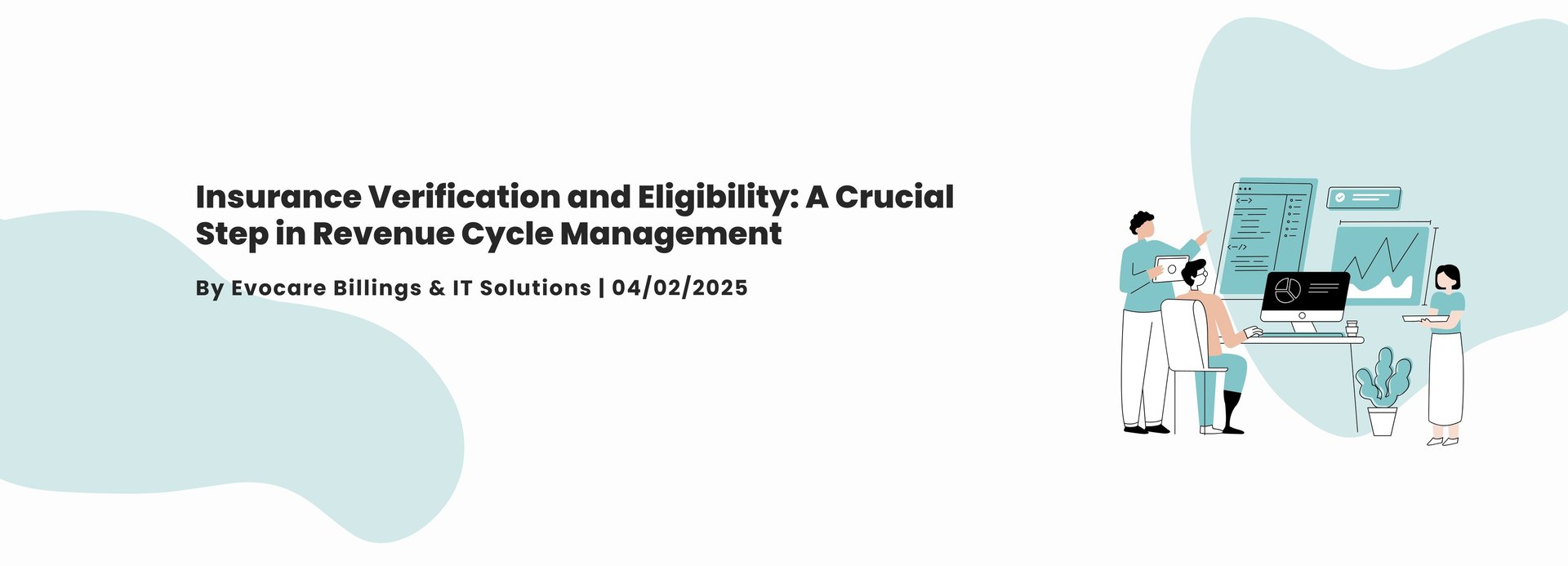
Insurance Verification and Eligibility: A Crucial Step in Revenue Cycle Management
By Evocare Billings & IT Solutions
Why Insurance Verification Matters
Insurance verification and eligibility checks are the foundation of a seamless healthcare billing process. This step ensures that providers are reimbursed for services by confirming a patient’s active coverage, benefits, and financial responsibilities. According to the Medical Group Management Association (MGMA), insurance-related issues are a leading cause of claim denials. A proactive verification process reduces denials, enhances patient satisfaction, and optimizes cash flow.
Call Us Now | +1 (323) 412-5399
Get a Quote
We Are Looking Forward to Hear from You..!!
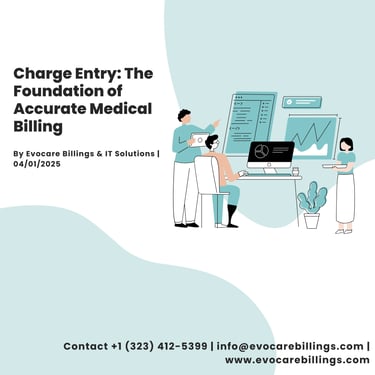

Key Elements of Insurance Verification
Full name, date of birth, and contact details
Insurance provider, policy number, and group ID
Type of insurance: Primary, secondary, or tertiary coverage
1. Patient Information Collection
Understanding Insurance Plan Types
HMO (Health Maintenance Organization): Requires referrals and in-network providers for coverage.
PPO (Preferred Provider Organization): Offers flexibility with both in-network and out-of-network providers but at different costs.
EPO (Exclusive Provider Organization): Requires in-network care without referrals but offers no out-of-network benefits.
POS (Point of Service): A hybrid model combining HMO and PPO elements, allowing patients to choose providers at different cost levels.
The Role of Primary and Secondary Insurance
Confirm which plan is billed first according to Coordination of Benefits (COB) rules
Ensure claims are submitted in the correct order
Check if the secondary insurance covers copays, deductibles, or uncovered services
Pre-Authorizations and Referral Requirements
Identify treatments that require pre-authorization
Submit authorization requests in advance to insurance providers
Track approval status and document responses
Communicate with patients about referral requirements
Common Challenges in Insurance Verification
Inaccurate patient information – Errors in demographic or policy details lead to claim rejections.
Changing insurance policies – Frequent updates in payer rules require continuous staff training.
Delayed pre-authorizations – Waiting for insurance approvals can postpone treatment.
Coordination of benefits confusion – Misidentifying primary and secondary coverage causes billing issues.
Despite its importance, insurance verification is often complex due to various challenges, including:
Best Practices for Effective Insurance Verification
To enhance accuracy and prevent claim denials, healthcare providers should adopt these best practices:
Verify coverage before the appointment – Checking eligibility in advance prevents last-minute complications.
Automate the process – Using automated verification systems reduces manual errors and processing time.
Confirm patient responsibility upfront – Informing patients about copays and deductibles helps avoid financial surprises.
Keep detailed records – Documenting verification findings in EHRs ensures transparency and reduces disputes.
Stay updated on payer policies – Regular staff training on insurance requirements improves efficiency.
Double-check primary and secondary coverage – Ensuring accurate COB prevents billing delays.
Technology has transformed insurance verification by making the process more efficient and error-free. Some key advancements include:
Insurance Verification and Eligibility: A Crucial Step in Revenue Cycle Management
Ensuring accurate insurance verification is not just about reducing claim denials—it plays a critical role in maintaining a healthcare facility’s financial health. When a patient’s insurance coverage is not verified properly, providers risk delayed payments, increased administrative burden, and potential revenue loss. Additionally, patients may face unexpected out-of-pocket costs, leading to dissatisfaction and financial strain. By implementing a structured verification process, healthcare organizations can improve efficiency, reduce errors, and enhance the overall patient experience.
JOIN OUR MEDICAL BILLING NEWSLETTER
Keep your practice ahead with the latest trends, expert tips, and industry updates in medical billing. Evocare Billing provides healthcare practitioners, physician groups, and hospitals with seamless billing solutions to optimize revenue and minimize claim denials. Subscribe to our newsletter and gain exclusive insights to enhance your practice’s financial success.
CONNECT WITH US ON SOCIAL MEDIA...!!
Stay informed and engaged with the latest updates in medical billing. Follow Evocare Billing on social media for expert insights, industry trends, and tips to maximize your revenue. Join our community and take your practice to the next level!
Payment Posting
RCM SERVICES
Account Receivable
Denial Management & Appeals
Physician & Facility Credentialing
Prior Authorizations
Medical Records & Fax Handling
Virtual Medical Assistant
Chronic Care Management
Insurance Verification and Eligibility
End to End RCM Services
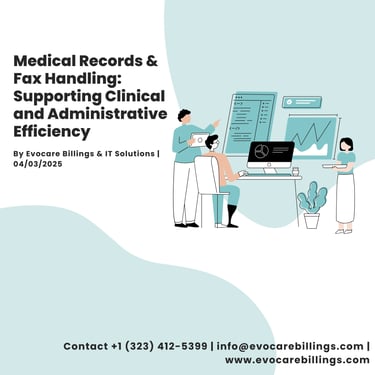

An effective insurance verification process consists of several essential steps. Healthcare providers must ensure they are thorough and systematic in gathering information and validating coverage.
Different insurance plans determine how much a patient will pay out-of-pocket and how providers get reimbursed. The main types include:
Some patients have multiple insurance plans. Primary insurance is responsible for the initial payment of claims, while secondary insurance covers remaining eligible expenses. If not coordinated properly, billing errors and claim denials may occur. To verify primary and secondary insurance:
Certain medical procedures, diagnostic tests, and specialist visits require prior authorization or referrals before services can be rendered. Missing these approvals can lead to claim denials and financial liability for patients. To streamline this process:
Before verifying insurance, it is crucial to collect accurate patient details, including:
2. Coverage and Benefit Validation
Once patient details are collected, verifying their insurance plan ensures there are no surprises for either the provider or the patient. This step involves checking:
Policy status (active/inactive) and effective dates
Copayments, deductibles, and out-of-pocket costs
Coinsurance and cost-sharing responsibilities
Specific coverage details for procedures, medications, and specialist visits
Family coverage details and dependent eligibility
Many healthcare organizations use insurance provider portals or clearinghouses for quick access to eligibility information. Some also integrate automated verification systems with their Electronic Health Records (EHR) for seamless processing.
Understanding these plan differences helps healthcare staff explain financial responsibilities to patients and avoid unexpected billing issues.
This process is particularly important for Medicare beneficiaries who might also have Medicaid or private insurance as secondary coverage.
Automated tools can assist in managing pre-authorization requests efficiently, ensuring compliance with payer guidelines.
By maintaining a structured verification workflow, providers can minimize these obstacles and enhance revenue cycle efficiency.
Outsourcing Insurance Verification Services
Leveraging Technology for Insurance Verification
Many healthcare providers choose to outsource insurance verification to specialized billing and credentialing companies. Outsourcing can offer several benefits, including:
Reduced administrative burden – Allows in-house staff to focus on patient care.
Expert handling of verifications – Ensures compliance with constantly changing payer policies.
Faster turnaround times – Increases efficiency with dedicated professionals managing verifications.
Fewer claim denials – Improves accuracy, reducing billing errors and eligibility-related rejections.
Cost savings – Eliminates the need for additional staffing and training expenses.
By partnering with a trusted medical billing company, healthcare providers can streamline insurance verification while enhancing revenue cycle performance.
Electronic Health Record (EHR) integration – Centralizes patient insurance data.
Automated Eligibility Verification Systems – Provides real-time payer information.
AI-powered virtual assistants – Helps staff verify insurance faster.
Cloud-based Revenue Cycle Management (RCM) platforms – Improves access to patient coverage details.
Coordination with clearinghouses – Enables seamless verification across multiple insurers.
Using these tools can significantly reduce administrative workload and improve claim acceptance rates.
The Bigger Picture: How Insurance Verification Affects the Revenue Cycle
Accurate insurance verification directly impacts a healthcare provider’s financial health. Benefits include:
Lower claim denials – Prevents rejections due to eligibility errors.
Faster reimbursements – Reduces payment delays and improves cash flow.
Better patient experience – Informed patients face fewer financial surprises.
Reduced administrative burden – Automation decreases manual effort and human errors.
Final Thoughts: Strengthening Insurance Verification for Long-Term Success
Action Plan for Providers:
Insurance verification is a vital component of the revenue cycle. By leveraging automation, training staff, and maintaining clear communication with patients, healthcare providers can prevent claim denials, enhance cash flow, and deliver a better patient experience.
Conduct a review of the current verification process.
Invest in automation tools for real-time eligibility checks.
Train front desk and billing staff on updated payer requirements.
Educate patients about their insurance coverage and financial responsibilities.
Establish clear processes for coordinating primary and secondary insurance coverage.
A proactive approach to insurance verification not only streamlines operations but also ensures financial stability for healthcare organizations.
Blogs | Subscribe To Billing Insights
Enjoy Seamless Solutions, Excellent Results..!!
Earn more and get paid faster with Evocare Medical Billing's 24/7 services.
Evocare is a medical billing provider that integrates with your existing EHR system for streamlined processing.
We are honored to offer top-tier service with a 99% retention rate that sets us apart.

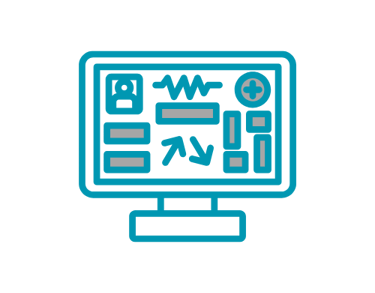

About Us:
We are dedicated to providing solutions that streamline operations & maximize revenue for providers. With a commitment to accuracy, efficiency & compliance, we help practice focus on delivering exceptional patient care.
Services:
Resources:
Terms & Conditions
|
|
HIPPA
ICD 10
EIN Registration 98-1830929
|
EHR:
Specialties:
FOLLOW US
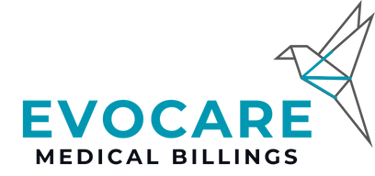

And Many More..!!
